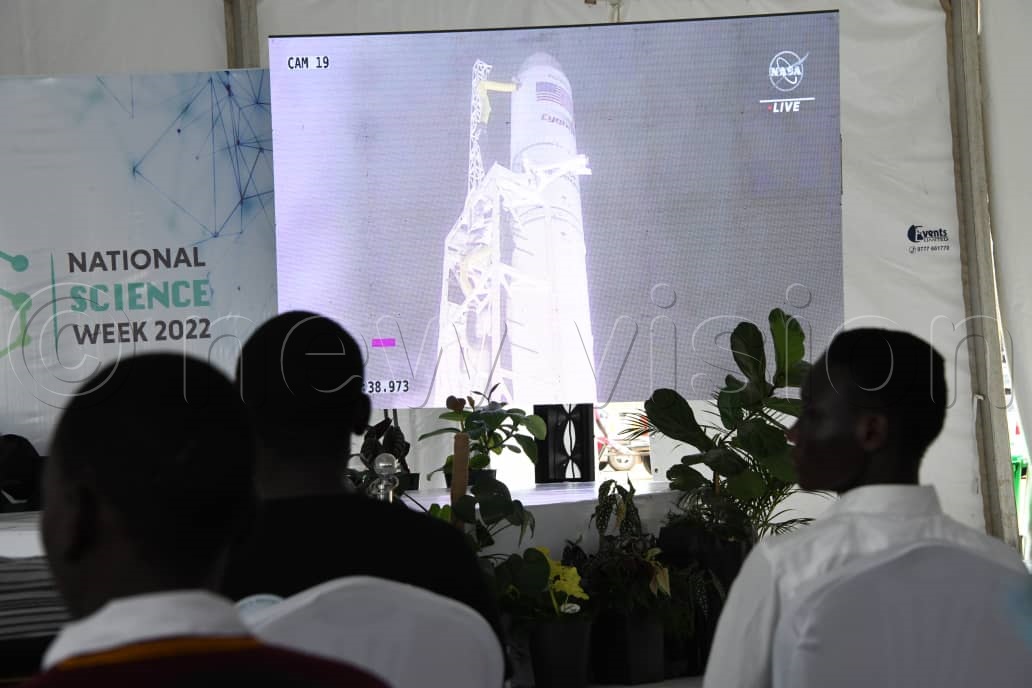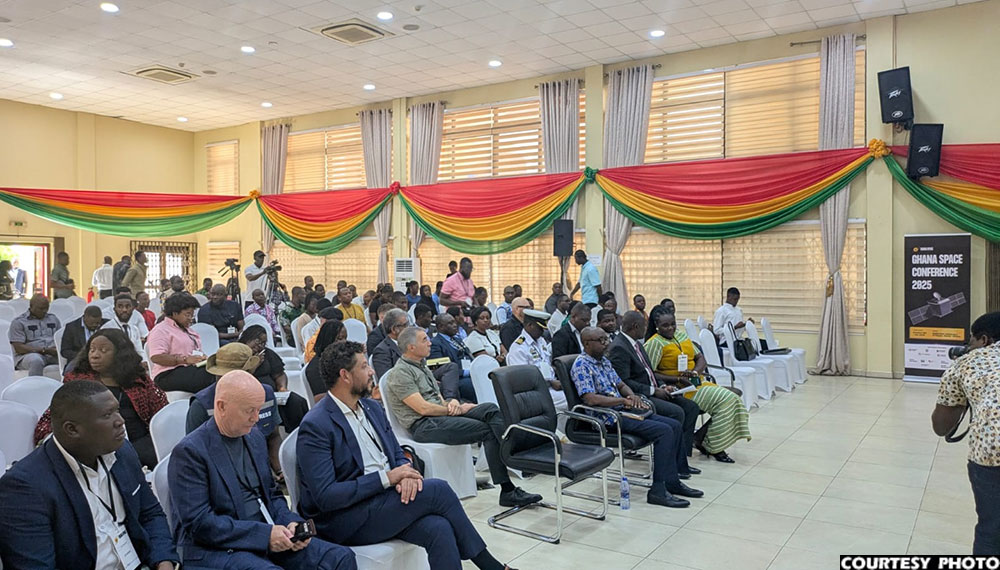Science & Tech
'Space technology is a necessity for Africa’s sustainable future'
“Space technology can transform how we live," said Kwaku Sumah, the founder and managing director of Spacehubs Africa, a joint convenor of the conference.
The three-day Ghana Space Conference 2025 (October 6-8) is taking place at the University of Ghana in Accra. (Courtesy photo)
By: Joseph Kizza, Journalists @New Vision
___________________
📡 SPACE TECHNOLOGY
When Uganda sent its first major probe into space in November 2022, there was a palpable buzz around town. But beyond the celebratory, euphoric aura, the East African nation's first ever satellite was on a mission.
Designed and developed by three Ugandan engineers, the PearlAfricaSat-1 was specifically designed to provide research and observation data.
That information would then provide solutions in weather forecast, land, water bodies and mineral mapping, agriculture monitoring, disaster prevention, infrastructure planning, and border security.
Ugandans remotely following the historic launch of PearlAfricaSat-1 in 2022
A first for Ghana
In May this year, the Ugandan government said it was planning to launch a second satellite into space.
Twenty-four years before Uganda's historic space breakthrough, Egypt had led the way in African satellite launching. Since then, only South Africa has sent more satellites into orbit than the north African nation.
A number of other African countries have launched their own too. Ghana is one of them.
The west African nation, which sits on the Atlantic Ocean in the south, launched the GhanaSat-1 into space in 2017. The probe was used to monitor environmental activities along Ghana's coastline.
Today, the country of nearly 35 million people is hosting its maiden space conference in the capital Accra.
The three-day Ghana Space Conference 2025, which got under way on Monday (October 6), is taking place at the University of Ghana. It is themed around harnessing space technology for sustainable development and inclusive growth in Ghana and beyond.
The event has drawn government officials, international organizations, scientists, industry leaders, policymakers, students, and entrepreneurs from across Africa and the world.
They are keen on exploring how space science and technology can transform economies and societies.

'A necessity'
“Space technology can transform how we live," said Kwaku Sumah, the founder and managing director of Spacehubs Africa, a joint convenor of the conference.
For instance, satellite data can be used to help farmers grow more food, improve internet access for remote schools, as well as track climate and disaster risks.
"It is about using cutting-edge science to solve local challenges and improve the daily life for all Ghanaians," said Sumah.
Prof. Nana Ama Browne Klutse, the CEO of Ghana's Environmental Protection Authority, said space technology is no longer a luxury.
"It is a necessity for Africa’s sustainable future," he said at the opening ceremony of the space conference.
He underlined the importance of space applications in addressing critical challenges, including climate resilience, environmental management, agriculture, disaster response, urban planning, and trade efficiency.
Ghana is looking to establish its own space agency following the approval and subsequent launch of the Ghana Space Policy in 2024.
"I believe that Ghana is laying the essential foundation to integrate space solutions into our national agenda while fostering continental collaboration," said Dr Joseph Tandoh, the director of the Ghana Space Science Institute.
"The next step is to establish the Ghana Space Agency to leverage space technology for benefits to research, policy, industry as well as for the overall prosperity of the ordinary Ghanaian.”